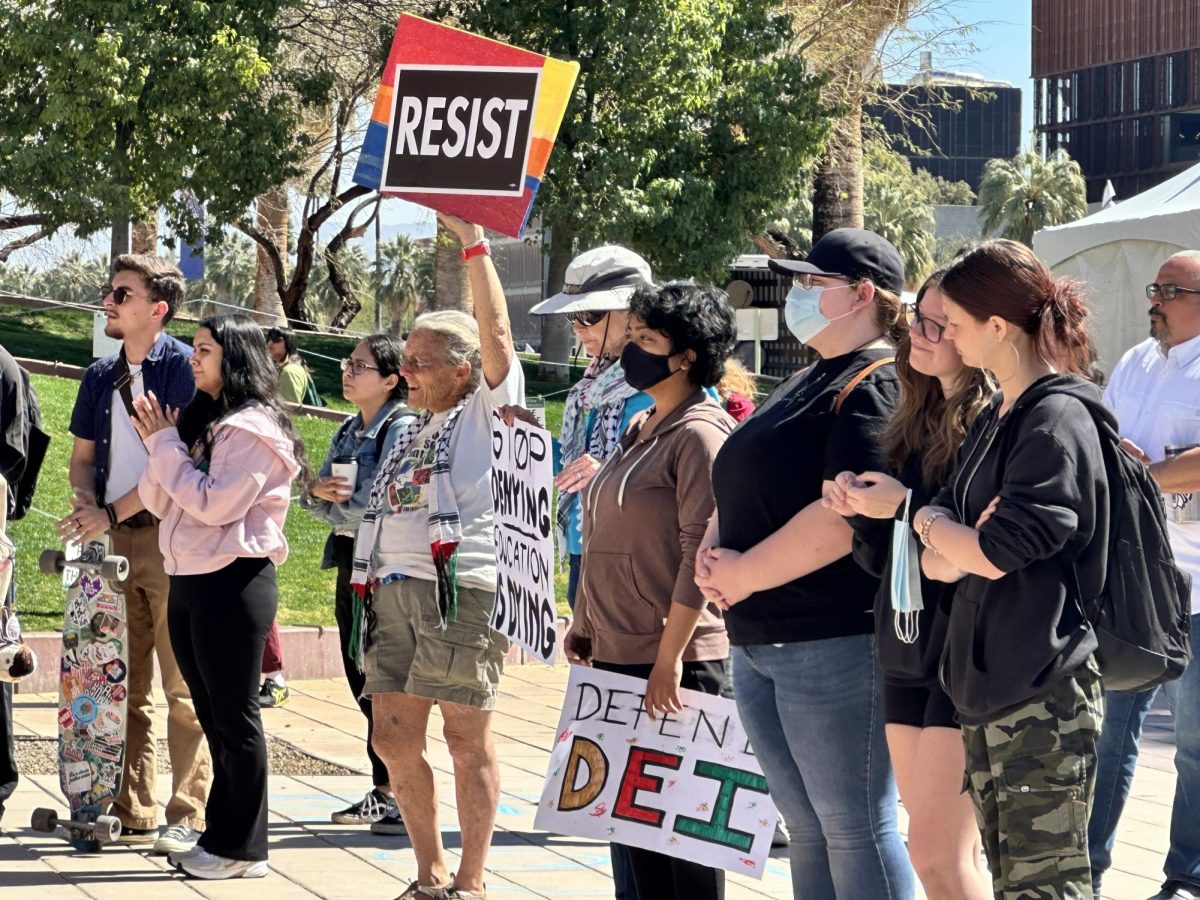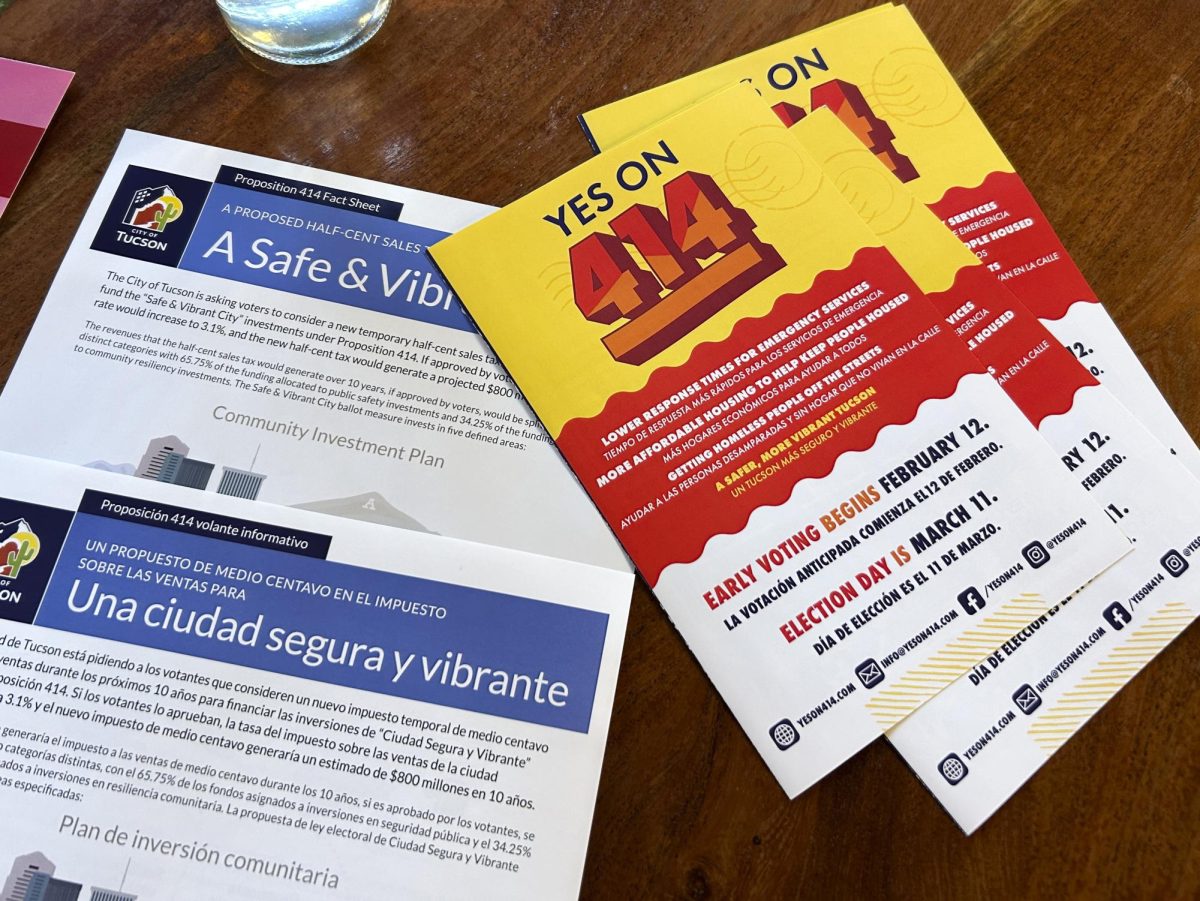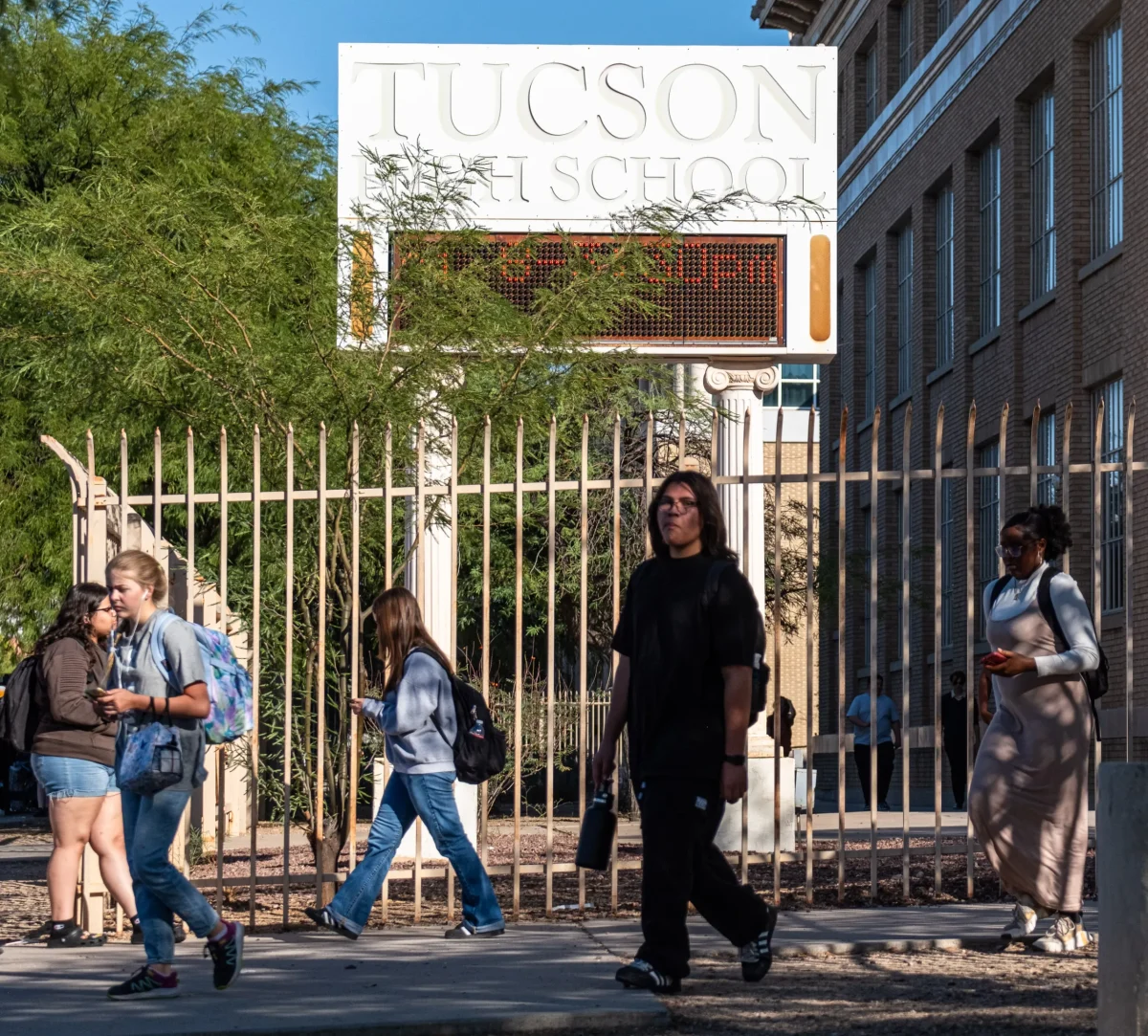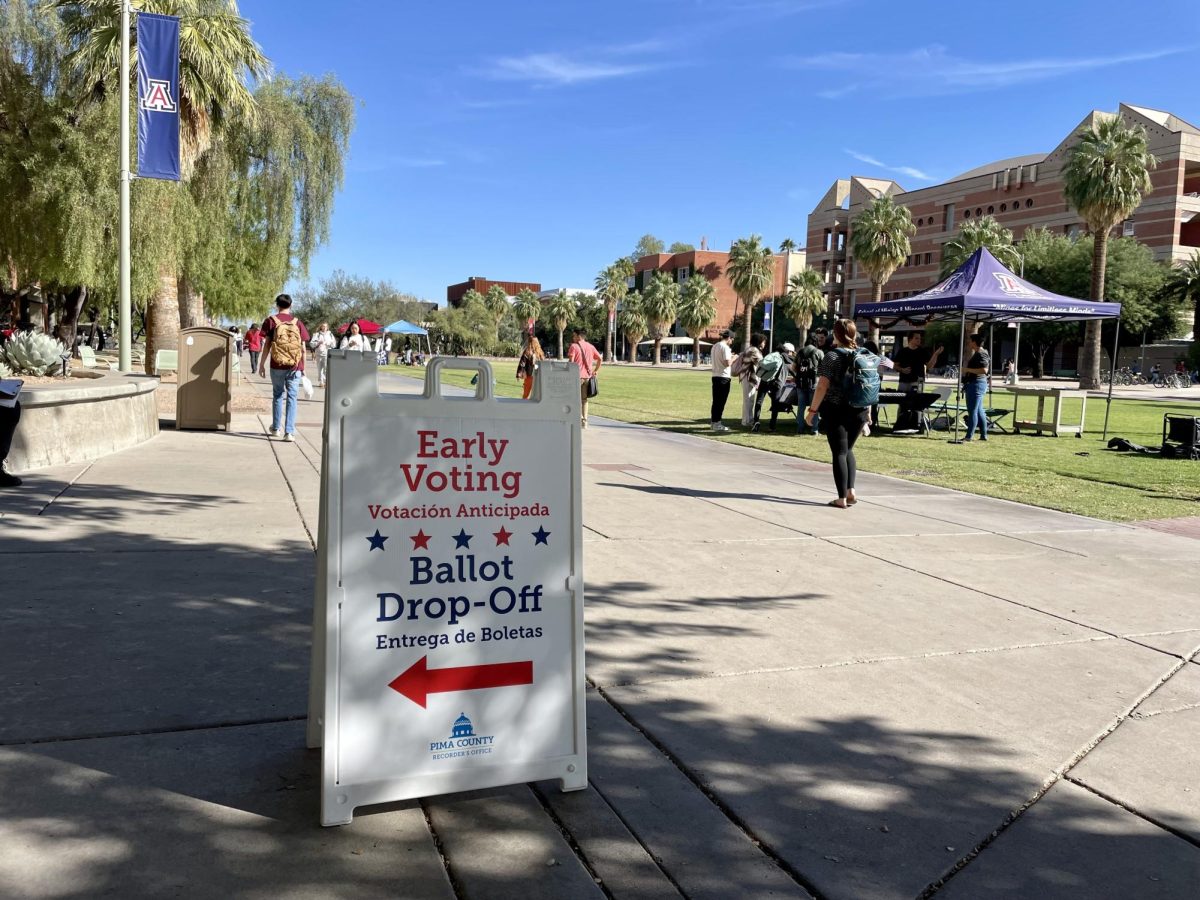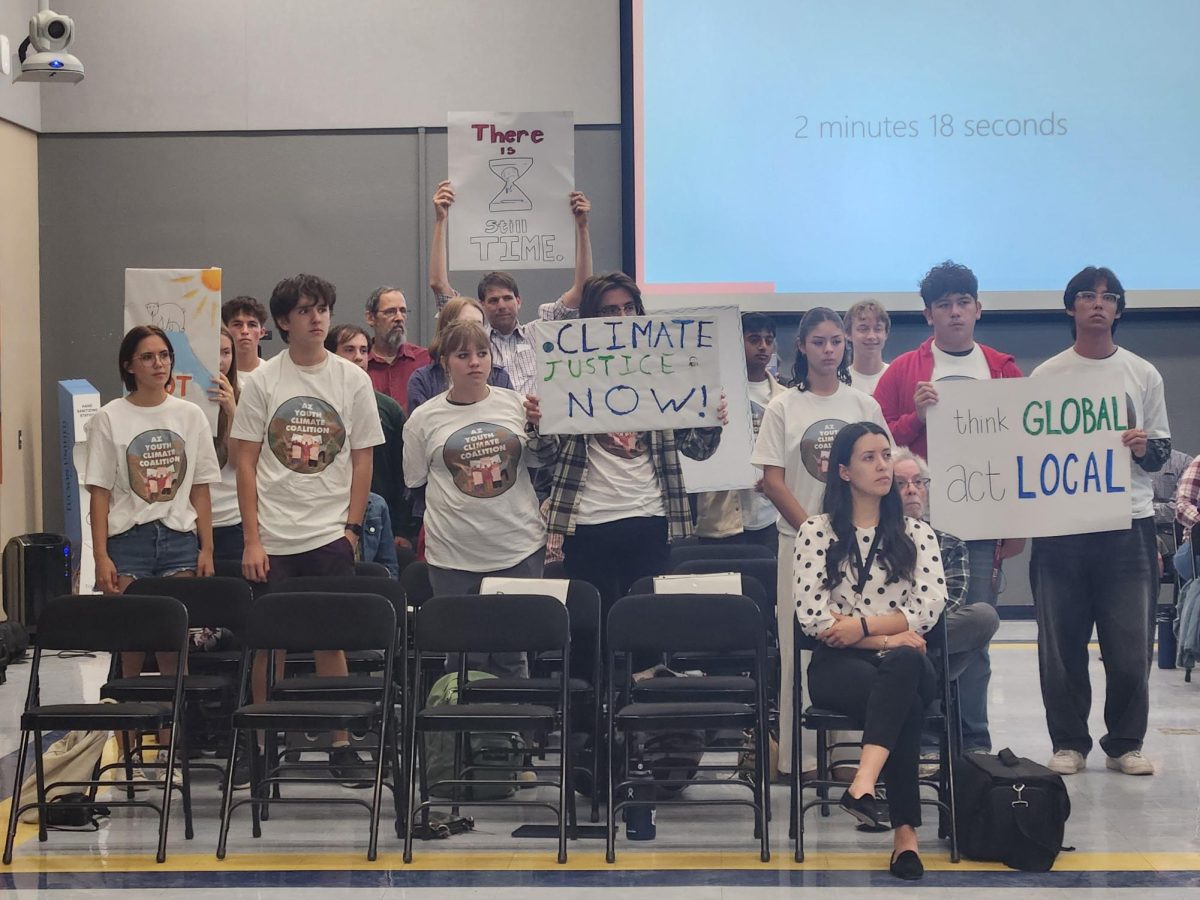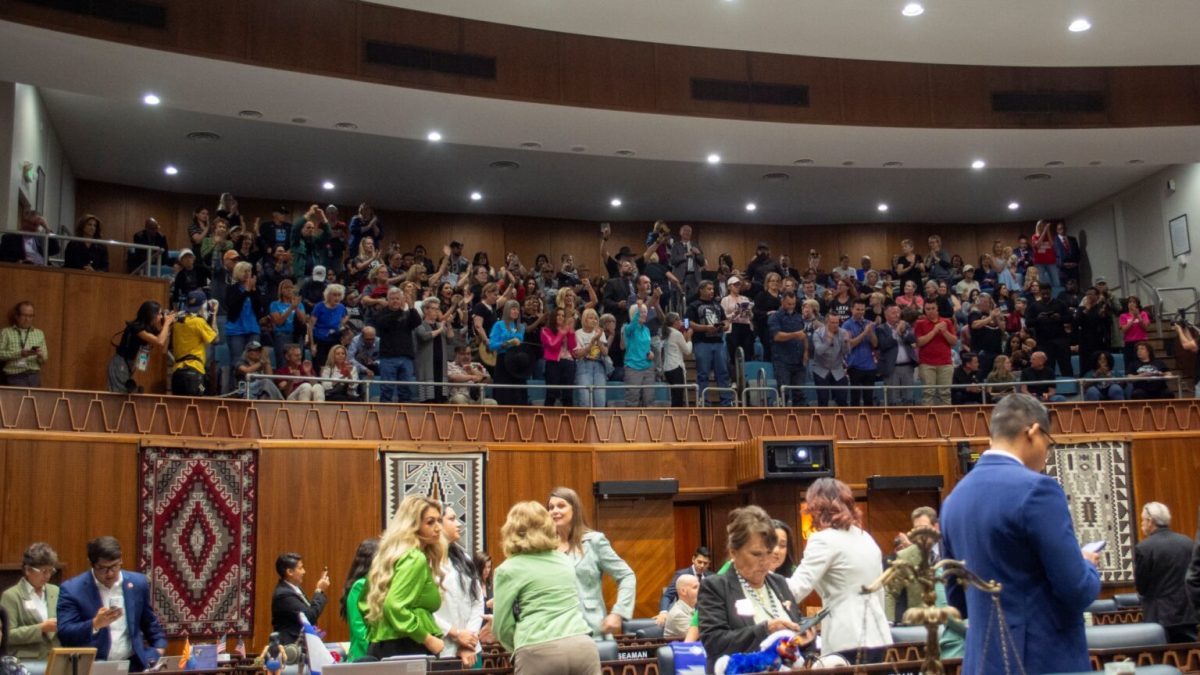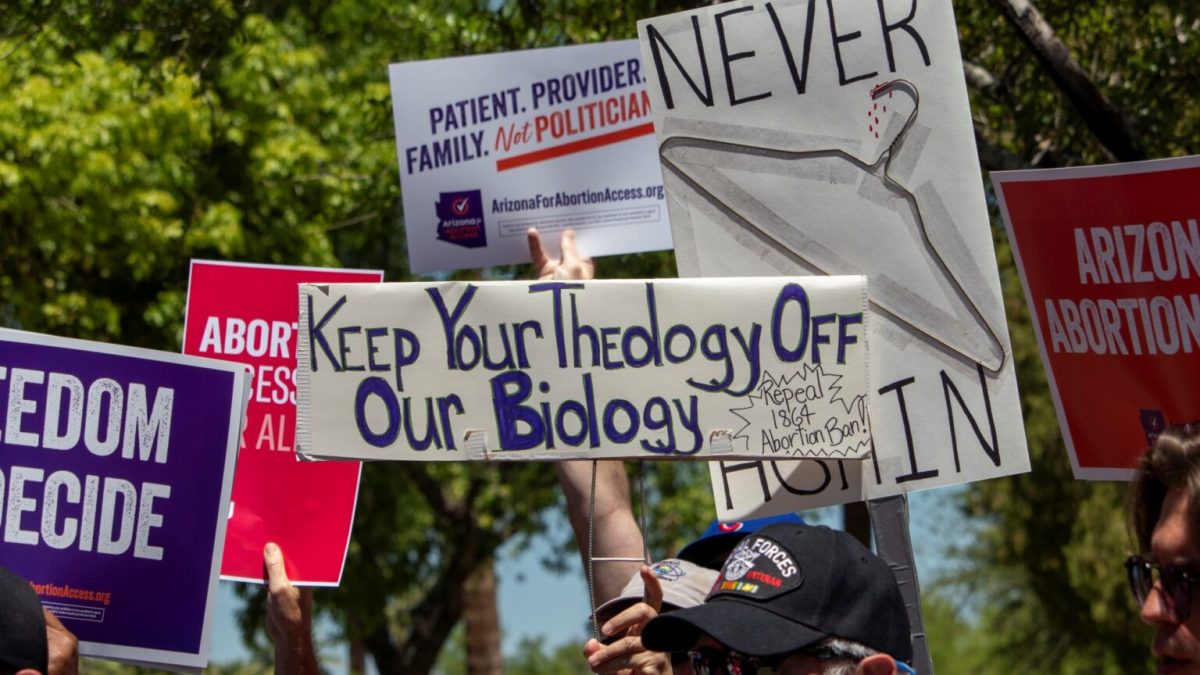Republicans are considering asking voters to amend the Arizona Constitution to slow down efforts towards a zero-emission future by prohibiting towns and cities from restricting the sale and use of things like stoves and lawn care equipment because they use fossil fuels.
“People should have their choice,” Rep. Gail Griffin, R-Hereford, said. “If they want solar, gas, electric…it’s a consumer choice bill. It goes to the voters, and lets the voters speak.”
Griffin is the lead sponsor of House Concurrent Resolution 2050, which would amend the state constitution to prohibit any restrictions on the “manufacture, use or sale of a device” based on the type of energy it uses. The House of Representatives has already passed the legislation; if it wins approval in the state Senate, it will appear on November’s ballot.
Griffin said her overarching goal is to protect consumer freedom.
Sen. Priya Sundareshan, D-Tucson, related the measure to an ongoing matter in her community, where residents are being encouraged to swap in their noisy, noxious gas-powered leaf blowers for quieter, greener electric powered ones.
In response, Griffin doubled down on the intent behind her legislation.
“I don’t want you to take my blower away. It’s my choice which kind I use, and it’s your choice which kind you use,” she said.
The legislation springs out of conservative uproar in 2023 about efforts in some places to ban the use of gas stoves in homes. New York became the first state to pass a law banning natural gas and other fossil fuels in most new buildings, and cities like San Francisco and Seattle have previously banned natural gas hookups in new construction.
California has also banned the sale of gas-powered lawn mowers and leaf blowers, as have municipalities across the nation.
Griffin’s legislation comes as the federal government issued its strongest ever vehicle emissions standardsjust last week as means to reduce the environmental impacts caused by passenger vehicles.
Sandy Bahr, head of the Grand Canyon chapter of the Sierra Club, spoke against HCR2050 during the Senate Natural Resources, Energy and Water Committee’s March 21 hearing. She noted the impacts of fossil fuels on the environment, a driving force behind the wave of zero-emissions legislation that HCR2050 aims at blocking.
“None of us live in a bubble, and if we did, then the unmitigated and unregulated use of devices would be just fine, but what my neighbor does affects me, and what I do affects my neighbor and that’s why this is a bad idea,” she said.
Caryn Potter, a lobbyist for the Southwest Energy Efficiency Project, said that the measure was “too vague” to be added to the Arizona Constitution.
“The referenced ‘device’ is undefined, so the types of devices that would be affected remain unknown to all of us,” Potter said.
Bahr echoed these concerns over the lack of clarity in the legislation’s text.
“Is it solar panels? Is it a windmill? A stove, a leaf blower, a toaster…? It’s so broad and undefined that it could have significant and unintended consequences, and you’re actually proposing to put it in the Arizona constitution,” Bahr said.
Barry Aarons of the Arizona Propane Gas Association said while they couldn’t agree more with the idea of protecting consumer choice, they oppose sending HCR2050 to the ballot, as they feel that the matter has been addressed.
“We already have a law on the books that says ‘consumer choice with the type of fuel you use’ is guaranteed under the law,” Aarons said. “We are at peace with where we are, we are comfortable that our consumers have their choice of whether they want to use any type of fuel.”
In 2020, the legislature amended state law to prohibit cities and towns from stopping residents from being able to use any type of energy they choose.
Meanwhile, speakers in support of HCR2050 echoed Griffin’s intent to preserve consumer choice, and referenced similar legislation that passed through the Wisconsin Assembly, albeit on party lines, last session.
One bill sought to prevent the Badger State’s lawmakers from passing zero-emission mandates that would encourage a wide-spread shift from gas powered cars and appliances to those that run on electricity. The other, much like HCR2050, would have prevented communities from restricting activities based on energy sources.
Both bills, however, were vetoed by Democratic Wisconsin Governor Tony Evers, who said the measures would prevent the state from ever being able to fight climate change by encouraging a switch to greener fuel sources.
But HCR2050 is safe from Gov. Katie Hobbs’ veto, as it is one of numerous measures that Republicans are trying to send to the ballot for voter approval instead. Doing so bypasses the governor entirely.
So far, lawmakers have sent six measures to this year’s ballot.
Sen. Sundareshan voiced her frustration with how much Republicans have looked this session to go to the ballot as a way to avoid Hobbs, as lengthening the ballot to include the various measures could create issues for Arizona come Election Day.
“This is, unfortunately, another example of burdening our ballot with vague changes, in this case, to the Arizona Constitution. This is counter to the direction we should be moving in — it’s going to prevent forward progress and innovation,” Sundareshan said.
HCR 2050 passed through committee on a 3-2 party-line vote, and now heads to the Senate floor for further consideration.
Bahr told lawmakers that, if passed, the measure would only serve Arizonans by motivating the state’s already-passionate environmentalist crowd to make their voices heard.
“I think if you put (HCR 2050) on the ballot, you will help drive voter turnout for environmental folks, because we are used to opposing things,” she said.
This story first appeared in AZ Mirror.



